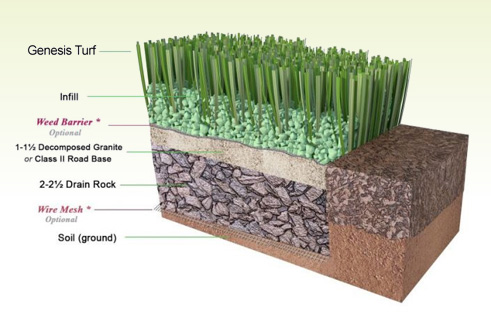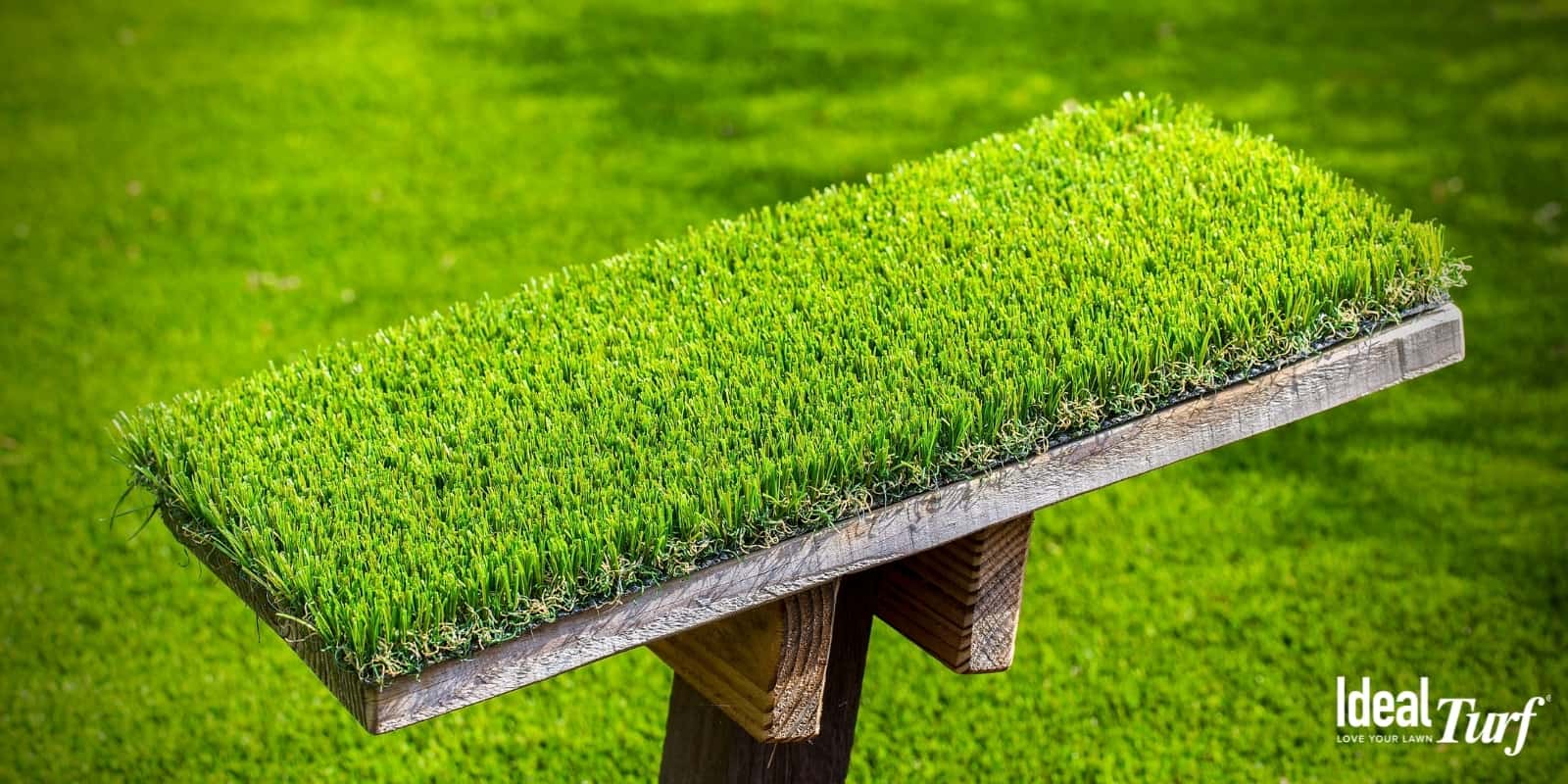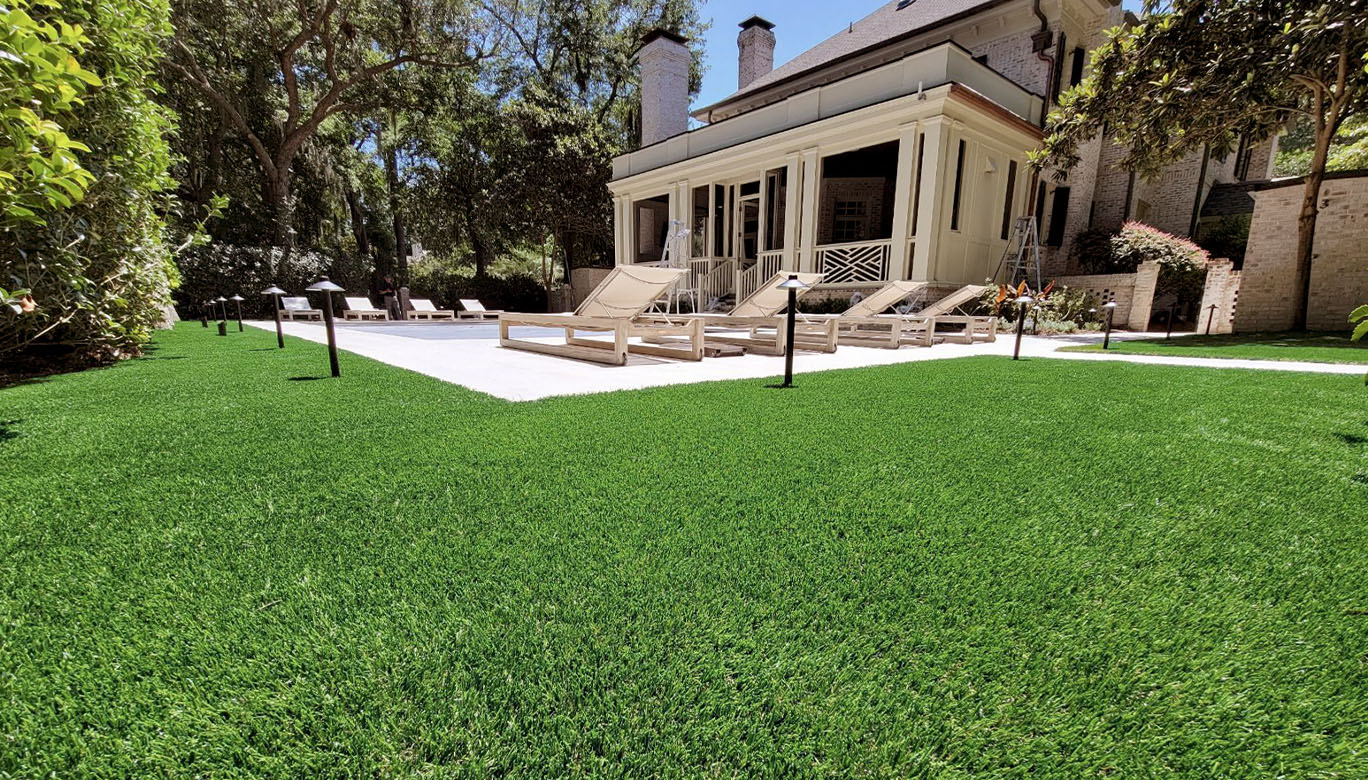Leading Phoenix Turf Companies Delivering High-Quality Synthetic Grass Options
Leading Phoenix Turf Companies Delivering High-Quality Synthetic Grass Options
Blog Article
Explore the Environmental Benefits of Opting for Artificial Lawn Solutions
The adoption of artificial grass services provides an engaging possibility to deal with pressing environmental difficulties. By substantially decreasing water usage and reducing the application of unsafe chemicals, these choices not only promote sustainable landscaping however additionally secure regional ecosystems.
Water Preservation Perks
One of one of the most considerable benefits of synthetic grass is its capability to conserve water. Standard turf yards call for considerable watering, especially in locations susceptible to drought or water constraints. In contrast, man-made lawn does not need watering, significantly reducing the total need for water sources. This function is especially beneficial in deserts where water deficiency is a pressing worry.
By removing the requirement for normal watering, synthetic grass adds to lasting landscape practices and helps minimize the environmental effect of extreme water consumption. The conservation of water expands to the reduction of overflow, which can lead to dirt disintegration and river air pollution.
In addition, the installment of synthetic grass permits towns and home owners to allot water resources much more effectively, focusing on necessary usages such as alcohol consumption water and farming. The shift towards synthetic grass not just promotes liable water usage however likewise aligns with broader ecological goals focused on maintaining all-natural sources.
As neighborhoods increasingly focus on sustainability, the water conservation advantages of synthetic grass present an engaging instance for its fostering in commercial and property landscape design tasks.
Reduced Chemical Usage
The shift to artificial lawn considerably reduces the dependence on chemical treatments commonly used in natural lawn maintenance. Typical grass monitoring normally entails the application of plant foods, chemicals, and herbicides to promote growth and control pests. These chemicals can posture dangers to human wellness, neighborhood wildlife, and the environment, adding to dirt and water contamination.
On the other hand, synthetic grass removes the requirement for these damaging substances. Once set up, it needs minimal maintenance, primarily being composed of regular cleaning and infrequent infill replenishment. This reduction in chemical usage not just profits the prompt setting however additionally contributes to wider ecological security. By decreasing the release of synthetic compounds into the ecological community, artificial lawn advertises healthier dirt and water supply.
In addition, the absence of chemical runoff connected with synthetic grass installments aids shield neighborhood waterways from pollution, supporting water life and preserving biodiversity. Arizona artificial turf. As neighborhoods progressively prioritize lasting techniques, going with artificial grass presents a sensible solution that lines up with environmental preservation objectives. Through this change, homeowner can appreciate lush green areas without jeopardizing eco-friendly wellness, leading the way for a much more sustainable future
Lower Carbon Impact

In addition, the installment of synthetic grass can result in significant water conservation. Natural yards need considerable amounts of water for watering, which not just contributes to the carbon footprint connected with water extraction check out this site and treatment yet likewise stress regional water sources. In comparison, artificial lawn needs minimal upkeep, calling for no watering, therefore dramatically reducing water usage and its linked energy prices.
In addition, the longevity of synthetic turf adds to its reduced carbon effect. With a lifespan of as much as 15 years or more, the demand for regular replacements is diminished, causing less waste and reduced energy consumption in manufacturing and taking care of traditional grass alternatives. Generally, synthetic grass presents a sustainable option for ecologically conscious landscaping.
Habitat Conservation
Environment preservation is a vital consideration in the dispute over landscaping selections, specifically when directory contrasting synthetic grass to all-natural grass. All-natural turf yards frequently call for extensive maintenance, consisting of using pesticides, herbicides, and plant foods, which can adversely impact neighborhood ecological communities. These chemicals can leach into the soil and waterways, damaging indigenous vegetation and fauna and interrupting neighborhood habitats.
On the other hand, synthetic grass offers a possibility to reduce the environmental impact of landscape design. By choosing synthetic turf, homeowners can reduce the disturbance of all-natural environments related to typical yard treatment practices. Synthetic grass eliminates the requirement for damaging chemicals, thereby protecting close-by wildlife and preserving the stability of bordering ecological communities. Furthermore, the setup of fabricated lawn can lead to the conversion of previous grass areas right into even more biodiverse landscapes, such as pollinator gardens or native plant locations, which can sustain neighborhood wildlife.
Inevitably, the shift to fabricated turf not only preserves water and decreases upkeep initiatives but likewise promotes a more unified relationship in between human tasks and the native environment, promoting habitat conservation at the same time.
Long-Term Sustainability
Long-term sustainability is a crucial factor in reviewing the advantages of synthetic grass over standard yard lawns. Among the most substantial advantages of man-made grass is its longevity; it can last as much as 15-20 years with very little upkeep, whereas all-natural yard needs frequent reseeding and substitute. This long life reduces the need for constant sources, such as water, plant foods, and chemicals, which are important for maintaining a healthy turf lawn.
Furthermore, synthetic grass contributes to a reduction in carbon exhausts related to lawn treatment devices. Typical grass often require gas-powered lawn mowers, trimmers, and blowers, all of which add to air pollution. Arizona great post to read turf. On the other hand, artificial turf gets rid of the demand for such devices, promoting a cleaner setting
In addition, the production of synthetic grass increasingly uses recycled products, improving its sustainability profile. As manufacturers adopt environment-friendly methods, the environmental footprint of synthetic turf remains to lessen.

Final Thought
The fostering of artificial grass options provides considerable environmental advantages, consisting of considerable water preservation, lowered reliance on unsafe chemicals, and a lower carbon footprint. Artificial grass aids in preserving natural environments by lessening land disturbance and promoting long-lasting sustainability through the use of sturdy products. Jointly, these aspects underscore the potential of man-made turf to add favorably to environmental wellness and provide a viable choice to typical landscaping methods in a significantly resource-conscious globe.
In contrast, fabricated grass does not need watering, significantly lowering the overall demand for water resources. By minimizing the release of artificial compounds into the ecological community, synthetic lawn promotes much healthier soil and water systems.
Additionally, the installment of man-made grass can result in substantial water preservation. In contrast, synthetic turf requires minimal maintenance, calling for no watering, therefore dramatically lowering water usage and its linked energy prices.

Report this page